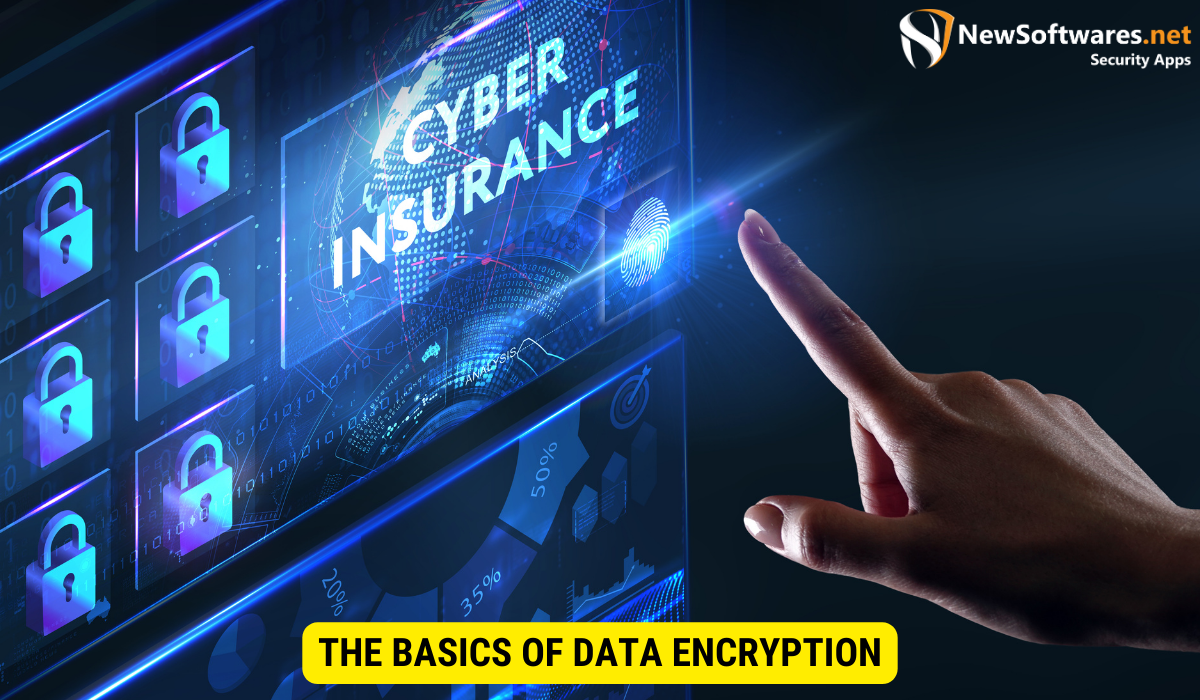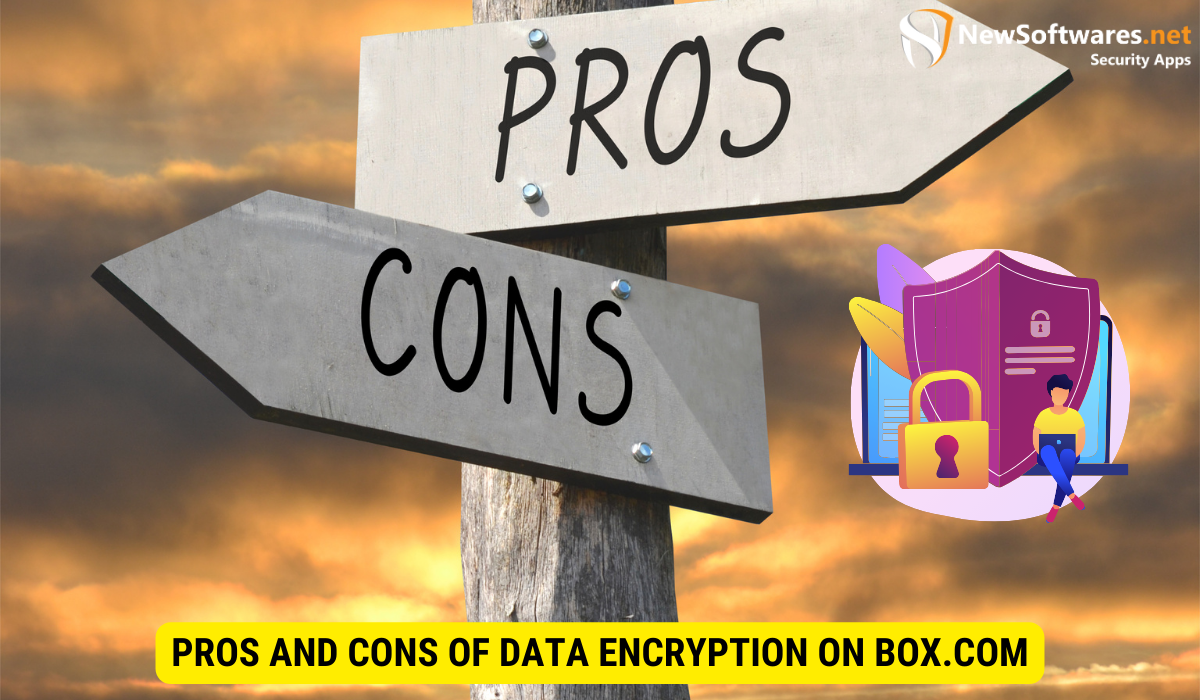Data encryption on Box.com safeguards data at rest and in transit, offering users the option of enterprise-level encryption with user-controlled key management.
In today’s digital age, where sensitive information is continuously being shared and stored online, ensuring data security has become a top priority for individuals and organizations alike. One of the most effective ways to protect data is through encryption. This article aims to provide a complete overview of data encryption on Box.com, a popular cloud storage and collaboration platform. By understanding the basics of data encryption, exploring how Box.com implements encryption, and delving into key management practices, you will gain insights into the security actions and compliance standards implemented by Box.com. We will also look at the pros and cons of using Box.com’s data encryption, helping you make well-versed decisions regarding the security of your data.
The Basics of Data Encryption

What is Data Encryption?
Data encryption is converting plain text or data into an unreadable format, known as ciphertext, by cryptographic algorithms. This ensure that even if the data is intercepted or accessed by unofficial individuals, it remains unintelligible without the correct decryption key.
Data encryption is a fundamental concept in the field of information security. It provides a means to protect sensitive information from being compromised or accessed by unauthorized entities. Encryption involves transforming the original data into an encoded form, making it difficult for anyone without the decryption key to decipher.
Various encryption algorithms are commonly used, for instance (AES) Advanced Encryption Standard, Data Encryption Standard (DES), and Rivest Cipher (RC4). These algorithms employ complex mathematical operations to scramble the data, making it virtually impossible for an attacker to reverse-engineer the original information.
Furthermore, data encryption can be applied to different data types, including text files, images, videos, and databases. This versatility allows organizations to protect a wide range of information, ensuring the confidentiality and privacy of their sensitive data.
Importance of Data Encryption
Data encryption is crucial in safeguarding sensitive information from threats such as hackers, data breaches, and unauthorized access. By encrypting data, persons and organizations can ensure the confidentiality and integrity of their information, maintaining the trust of their customers and stakeholders.
In today’s digital landscape, where cyber threats are becoming increasingly sophisticated, data encryption is no longer just an option but a necessity. It provides an additional layer of security, making it significantly harder for attackers to gain unauthorized access to sensitive data.
One of the primary benefits of data encryption is that it helps prevent data breaches. Even if an attacker infiltrates a system or network, the encrypted data remains unreadable without the decryption key. This significantly reduces the impact of a potential breach, as the stolen data would be useless to the attacker.
Data encryption also helps organizations comply with various regulatory requirements and industry standards. Many sectors, such as healthcare and finance, have strict data protection regulations, and failure to comply can result in severe penalties. By implementing robust encryption measures, organizations can demonstrate their commitment to data security and make sure compliance with these regulations.
Moreover, data encryption can enhance an organization’s overall reputation and trustworthiness. Customers and stakeholders are ever more concerned about the privacy and security of their data. By implementing strong encryption practices, organizations can instill confidence in their customers, reassuring them that their information is protected adequately.
Data Encryption on Box.com
How Box.com Implements Data Encryption
Box.com employs multiple layers of data encryption to ensure the security of users’ data. Upon uploading a file, Box.com automatically encrypts the data at rest when it is stored on their servers. This encryption uses the Advanced Encryption Standard (AES) with a 256-bit key, widely recognized as one of the most secure encryption algorithms.
In addition to encryption at rest, Box.com encrypts data in transit, ensuring that any information sent between users’ devices and Box.com’s servers is encrypted using secure protocols, for instance SSL/TLS. This prevents unauthorized interception and eavesdropping, further enhancing the security of the data.
Levels of Data Encryption on Box.com
Box.com offers two levels of data encryption: Standard and Enterprise. With the Standard level encryption, Box.com encrypts data at rest and in transit, as earlier mentioned. However, for users with higher security requirements, enterprise-level encryption provides an additional layer of control by enabling them to manage their encryption keys.
With Enterprise-level encryption, users have full control over encryption keys used to encrypt and decrypt their data. This means that even Box.com administrators and employees cannot access the encrypted data without the user’s encryption key. This level of control offers an added layer of security for users who require the utmost confidentiality for their data.
Key Management in Box.com’s Data Encryption
Understanding Key Management
Key management plays a very important task in the overall security of data encryption. It involves generating, storing, distributing, and disposing encryption keys. Proper key management ensures the encryption keys are kept secure, easily accessible when needed, and protected from unauthorized access or loss.
Role of Key Management in Data Encryption
In the context of data encryption on Box.com, key management ensures that the encryption keys required to encrypt and decrypt users’ data are properly handled. Through robust key management practices, Box.com ensures that access to encoded keys is restricted to authorized individuals, minimizing the risk of data breaches or unauthorized access.
Security Measures and Compliance
Box.com’s Security Protocols
Box.com employs a comprehensive set of security protocols to protect users’ data. These protocols include but are not limited to multi-factor authentication, granular access controls, activity monitoring, and encryption. By implementing these security measures, Box.com ensures that users’ data is protected throughout the entire data lifecycle.
Compliance Standards Met by Box.com
Box.com understands the significance of compliance with industry standards and regulations. As such, they have obtained various certifications and compliances to assure users of their commitment to data security. Some of the compliance standards met by Box.com include SOC 2 Type II, ISO 27001, HIPAA, GDPR, and FedRAMP. These certifications demonstrate Box.com’s adherence to rigorous security and privacy standards that different industries and regulatory bodies require.
Pros and Cons of Data Encryption on Box.com

Advantages of Using Box.com’s Data Encryption
The use of data encryption on Box.com offers several advantages. initially, it provides an extra layer of safety, ensuring the confidentiality and integrity of users’ data. Secondly, Box.com’s encryption features are seamlessly included into the platform, making it easy for users to protect their data without requiring extensive technical knowledge. Lastly, the option for users to manage their encryption keys with enterprise-level encryption offers enhanced control and peace of mind for those with heightened security requirements.
Potential Drawbacks of Box.com’s Data Encryption
While data encryption on Box.com provides significant security benefits, there are a few potential drawbacks. Firstly, the additional layer of encryption can slightly impact the performance of data transfers and access times. However, this impact is often minimal and outweighed by the increased security. Secondly, with enterprise-level encryption, users manage their encryption keys. This requires careful management and potential consequences if the keys are lost or compromised.
Key Takeaways
- Data encryption is crucial to data security, and Box.com offers robust encryption features.
- Box.com encrypts data at rest and in transit, providing multiple layers of security.
- The option for Enterprise level encryption allows users to manage their encryption keys.
- Proper key management plays a critical role in the security of data encryption.
- Box.com adheres to industry standards and regulations, meeting various compliance standards.
Frequently Asked Questions (FAQs)
Is data encryption on Box.com mandatory?
No, data encryption on Box.com is not mandatory. However, it is highly recommended that you ensure the security and confidentiality of your data.
Can Box.com administrators access my encrypted data?
No, with Enterprise level encryption, Box.com administrators cannot access your encrypted data without your encryption key.
Can data encryption impact the performance of file transfers?
While data encryption can slightly impact performance, the impact is usually minimal and worth the added security benefits.
What compliance standards does Box.com meet?
Box.com meets various compliance standards, including SOC 2 Type II, ISO 27001, HIPAA, GDPR, and FedRAMP.
What happen if I lose my encryption key?
If you lose your encryption key with Enterprise level encryption, you may permanently lose access to the encrypted data. Therefore, it is crucial to properly manage and safeguard your encryption keys.
Conclusion
Data encryption on Box.com provides a robust security solution for individuals and organizations seeking to protect sensitive information. Box.com ensures the confidentiality and integrity of users’ data by implementing encryption at rest and in transit and offering Enterprise level encryption with user-controlled key management. With a strong emphasis on security measures and compliance standards, Box.com has positioned itself as a trusted platform for secure data storage and collaboration. While data encryption may have minor performance impacts and require responsible key management, the advantages far outweigh the potential drawbacks. By utilizing Box.com’s data encryption features, users can alleviate the risk of data breaches and unauthorized access while maintaining control over their sensitive information.
